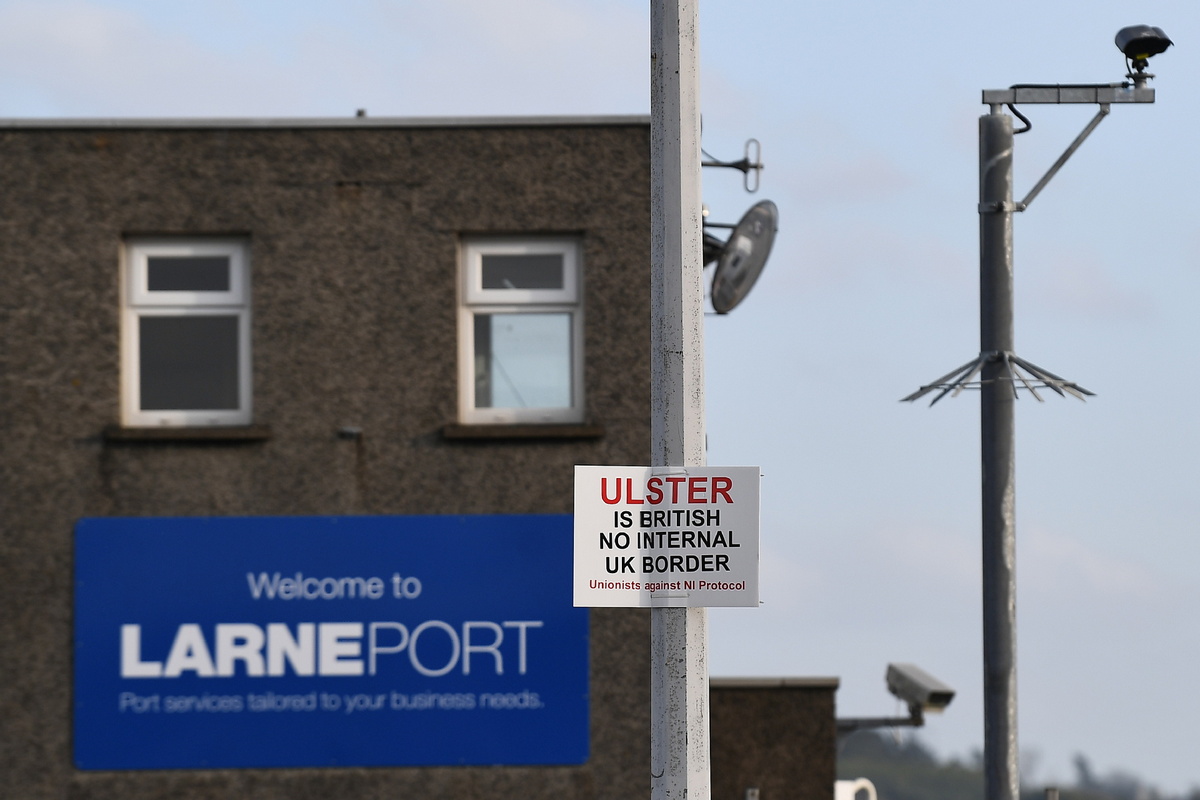N. Ireland spat may spoil peace deal
By JULIAN SHEA in London | China Daily | Updated: 2021-03-05 10:01

Northern Ireland has reemerged as a stumbling block in the post-Brexit relationship between the United Kingdom and the European Union after the UK extended grace periods for border checks on the Irish Sea, something the EU says is in breach of international law.
Northern Ireland, which is part of the UK, is currently bureaucratically separated from the British mainland for trade purposes, as it remained in the EU single market for goods as part of the Brexit deal.
This means goods arriving from the mainland will be subject to customs checks, although this will not come into effect until the end of March. But the British government unilaterally extended this period until October.
Speaking to Irish state broadcaster RTE, Ireland's foreign minister Simon Coveney said the UK's actions meant the EU was now negotiating over Northern Ireland "with a partner it simply can't trust".
"That is why the EU is now looking at legal options and legal action which means a much more formalized and rigid negotiation process as opposed to a process of partnership where you try to solve the problems together," he added.
Ireland's deputy prime minister Leo Varadkar backed him up, calling the actions "not the way a friend should behave" and "not the way a respectable, honorable country should behave".
On Wednesday, European Commission Vice President Maros Sefcovic spoke to Lord Frost, the UK Cabinet member with responsibility for EU relations, after which a UK government spokesperson said the Commission had been given "official-level notification" of the move earlier in the week.
'Operational reasons'
Lord Frost underlined the extension was needed for "operational reasons", the spokesperson continued, and added such measures were "well precedented in other international trade arrangements, and that they were entirely consistent with our intention to discharge our obligations under the Protocol in good faith".
There are fears disputes over the border could threaten the Good Friday Agreement, the 1998 document that brought an end to decades of violent civil conflict across Ireland and the UK.
A letter sent to Prime Minister Boris Johnson by the Loyalist Communities Council, or LCC, which represents Loyalist paramilitary groups, said border disagreements meant it no longer backed the agreement, and called on him to renegotiate the Northern Ireland Protocol, the part of the Brexit divorce terms relating to Northern Ireland.
"The LCC is prepared to play a meaningful role in seeking a workable solution, however a starting point has to be the acceptance that a hard border on the island of Ireland, or between Northern Ireland and the rest of the United Kingdom has no cross-community support here and is therefore untenable," wrote its chairman David Campbell.
"If the EU is not prepared to honor the entirety of the Agreement then it will be responsible for the permanent destruction of the Agreement."
























